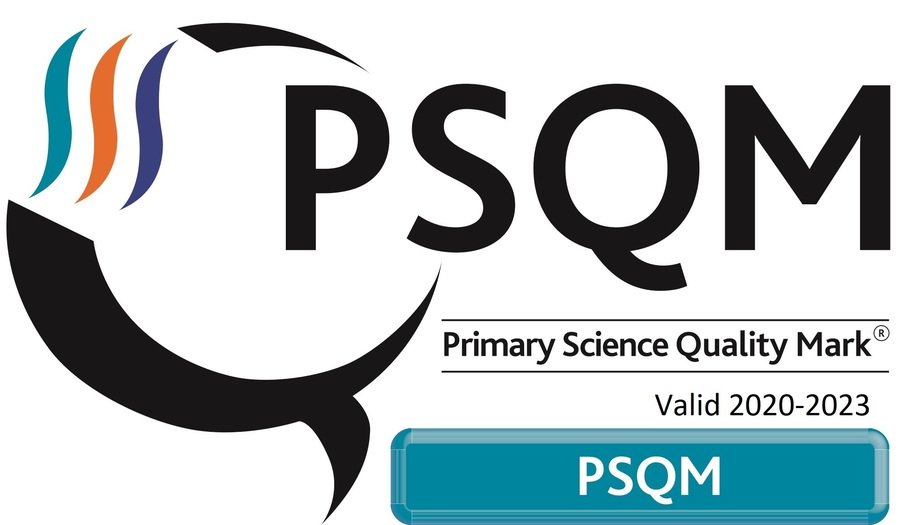English
At Our lady of Lourdes Catholic Primary School we believe that the skills in English: reading, writing and speaking and listening; provide the foundations for pupils’ achievement throughout the whole curriculum and all other areas of learning for now and the future.
English is a core subject of the National Curriculum, with reading, writing and speaking and listening being taught and practiced in a range of ways and across all subjects. Through a range of situations, pupils have the opportunity to develop culturally, emotionally, intellectually, socially and spiritually.
At Our Lady of Lourdes we promote high standards of language and literacy by equipping pupils with a strong command of the spoken and written word, and by developing their love of literature through widespread reading for enjoyment.
We aim to ensure that all pupils:
- Read, write and communicate orally with confidence, fluency and understanding.
- Have an interest in books and literature; whilst practising reading for enjoyment
- Develop and foster a love of words, phrases and sayings; explore their meanings and use a growing vocabulary in both spoken and written forms
- Discuss reading and writing comprehensively: expressing opinions; explaining techniques and justifying preferences; referencing a wide range of literature and using appropriate vocabulary.
- Understand a range of text types and genres; develop knowledge to appreciate our rich and varied literary heritage
- Write using a variety of styles and forms.
Speaking and Listening
Intent
We seek to develop the highest levels of oracy and critical thinking in our children. We aim for them to use their wisdom well, with respect and compassion. We aim that our children become excellent and active listeners who develop their visualisation skills, subsequently enhancing their imagination and in turn, supporting their reading and writing skills.
Implementation
We achieve this by ensuring children have opportunities to use language appropriately and explore the rich wealth of vocabulary provided through role-play, storytelling, poetry and good quality literature.
We encourage parents to read to their children daily. We know that, in order for children to develop their vocabulary, they need to have access to high quality texts which are read to them, discussed and thus promote a greater extensive vocabulary, wisdom and a deeper understanding of texts.
Pupil voice is an integral feature of learning and we seek to develop personal independence, trust and leadership through providing a variety of opportunities such as School Council, Catholic Ambassadors, whole school topic sharing, ‘Faith’ house leadership roles and Playground Buddies. Older children are encouraged to take on responsibilities, such as lunchtime duties, ringing the bell, the new school paper and they are starting to organise and run lunchtime clubs for younger children.
Impact
Our children will enjoy recalling, questioning and exploring information and will be able to communicate their ideas and thoughts clearly, developing an awareness of their audience in order to interject when appropriate and maintain eye contact and positive body language.
Reading
Intent
Reading is at the heart of our learning and teaching and essential to every area of the curriculum. It is through literacy that concepts are formed and we are able to make sense of the world and our place in it. Literacy is at the heart of all we do and it is taught through high quality texts with children encouraged to immerse themselves in books, leading to excellent writing outcomes. We aim for our children to have a genuine love of reading, an admiration for the pleasure it can bring, and to develop the determination to achieve this goal.
Implementation
We have a well-stocked library in school which supports our desire to ensure that our children develop a passion for reading. Our children are encouraged to use this regularly and the classes visit at least once a week to listen to stories and change their books. There is a free book swap at the main entrance of the school as well as a ‘travelling library’ which is taken outside at playtime every day.
Children are taught to read using a number of different strategies. Each week children read individually and in groups; they are also given regular opportunities to share a book with others. Teachers read a variety of texts daily with each class; fiction and non-fiction, stories, reports, diaries, poems etc. All children follow the Read Write Inc. programme from Reception Class through to Year 6. Talk Through Stories is used in Reception and Year 1 to facilitate early reading skills.
We place a strong emphasis on phonics (letter sounds) in the early stages of learning to read but we are mindful that developing a love and passion for reading and a literate environment are essential factors to support reading.
We have a home-school reading system which recommends that parents read with their children every day. We encourage parents to read to their children, in addition to hearing them read, and this is important beyond the free-reading stage. Once children have progressed from the Read, Write Inc home book scheme, they progress to the Oxford Reading Tree which is tailored to meet the academic needs of the child. We also support these with “real” books which the children love to read.
In the early stages of reading development there is a strong focus on developing excellent phonic skills and children read texts that enable them to practice the phonemes they have been taught in class. Children take a book home that is directly linked to the sounds learned in phonics lessons.
Our children are encouraged to read a variety of genres and we use a Reading Road Map to support this.
We encourage our children to read and be read to and as part of this we have a Book Buddy system whereby older children read with the younger children weekly.
Impact.
We aim to inspire children to enjoy reading, to choose to read for pleasure and to become lifelong readers. Our children leave with a love of literature, and the wisdom and compassion that this provides
Writing
Intent
Our aim is that children become confident, able, independent writers who enjoy and understand the structure, purpose and forms of writing and can apply these skills to adapt their writing to different audiences. Children will be able to express themselves in a variety of different ways using their knowledge of Standard English, Spelling, Punctuation and grammar and clear handwriting, to allow their ideas to be recorded successfully and their writing to flow.
Implementation
At Our Lady of Lourdes we believe that children develop as writers through having a sense of audience and purpose. The children will be immersed in the text through visualisation, role play, discussion, etc. We use the Read Write Inc. Literacy and Language programme from Year 2 once pupils have progressed from Read Write Inc. Phonics.
The children will cover a range of different types of writing from instructions to story writing. As a result of experiencing a range of texts and genres, children develop an awareness of the author’s intentions; this underpins their ability to write for effect with an awareness of the reader.
We use explicit teaching techniques to ensure that our children rehearse and compose their ideas before writing them down.
We draw upon high quality literary texts to stimulate writing. This approach engages and motivates children in their literary learning and enables children to deepen their understanding of texts and provides a meaningful context for writing.
A quality text is used as a basis for learning over a several weeks. Children will explore and discuss the text through creative activities. They will also write in a range of genres as part of the unit. For example, they may write a letter in character or write a newspaper recount about the events in the text.
Reading aloud is a key part of our curriculum and we value the process of the teacher modelling expressive and fluent reading to the children who, in turn, echo what they have heard read in their own reading.
Children learn spellings each week and spelling is taught daily in Key Stage 1 phonic lessons, and four days a week in Key Stage 2.
Impact
Our children develop a love of writing and are confident to write for a variety of purposes and to different audiences. They make excellent progress from their starting points and leave our school being able to effectively apply spelling rules and patterns they have been taught. They will acquire knowledge of literary techniques and styles and a respect for the writers who produce them.
Spelling, Punctuation and Grammar and Phonics
Intent
Our intent is to give pupils the knowledge and strategies required to become confident writers and accurate spelling using their knowledge of the structure of English grammar.
Implementation
The school places a high emphasis on enabling our children to develop their phonic skills from Reception through to Key Stage One and when necessary, beyond. We have a consistent approach to phonics teaching and use Read, Write Inc. to support our class teaching. In EYFS and Key Stage 1 children receive daily phonic sessions. From Year 2 upwards, pupils follow the Read Write Inc. spelling programme.
During the summer term in Year 1, children nationwide are tested on their phonic knowledge. This test helps to identify children who have gaps in their phonic knowledge and may need further support in Year 2.
Our Key Stage Two children receive discrete spelling, grammar and punctuation teaching in weekly lessons. These lessons coincide with some phonics teaching in Key Stage 1 to ensure continuity through the school.
Impact
Children consistently achieve well in the statutory phonics test and develop a secure knowledge of phonics. They move on to apply their EGPS skills to their writing and reading to good effect.
They produce writing that is grammatically correct and apply spelling rules consistently.
More information about Read Write Inc can be found here.








